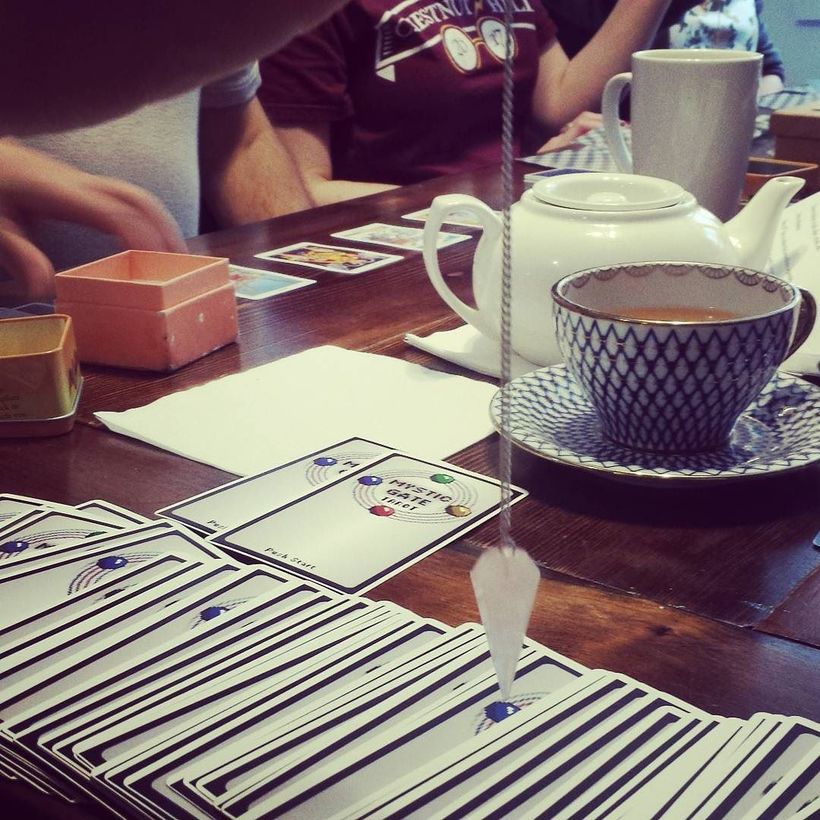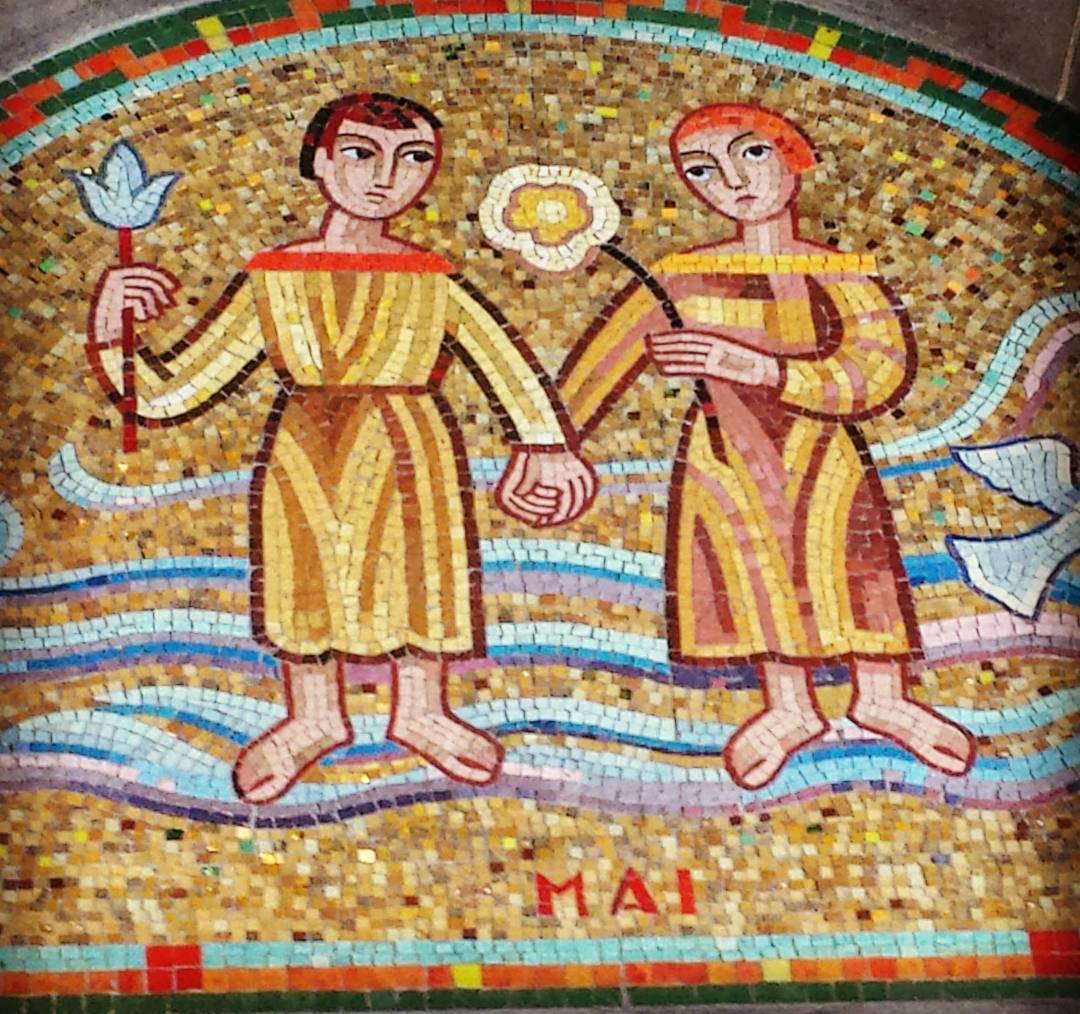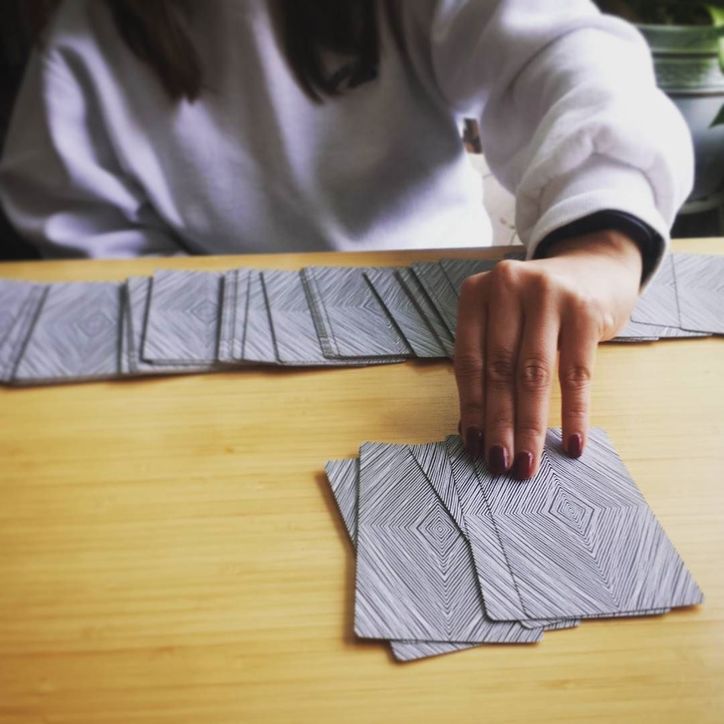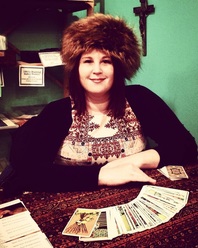|
This is the first in a series about outing ourselves when we read tarot to others. This is Part I. Deciding when to tell others about tarot is a highly individual process. There usually comes a time when we want to share our growing tarot skills with others, or find like-minded people who also love tarot. At some point, we reach a crossroads; do we tell others that we read tarot, and if so, how? If we feel the call so strongly that we desire to read on a professional level, how do we negotiate the protocol of coming out of the tarot box? The decision to become a tarot practitioner comes with a host of challenges and issues to consider. At each step in the process of revelation, we pause to reflect upon whether we should, and if we can, how to go about telling people about this thing called tarot and why we think it’s so great. Our tarot origin story affects how we come out of the tarot box. A tarot origin story consists of the years leading up to the first time you placed your hands on a tarot deck and claimed it for your own. The origin story is a major factor for how and in what way we share that we read tarot for others, it is and our personal narrative. Our narrative is in the stories we learned, the stories we lived and the stories we repeat to ourselves. In order to approach telling others about our tarot practice, we first need to understand what we learned about family, cultural, and social messages and how those internalized beliefs impact our decisions today. In grappling with the process of a tarot coming out is to deeply remember and reflect upon your tarot origin story. How did you learn about tarot? Did anyone help you in your first steps? What family and cultural messages did you get, and what internalized beliefs do you have around acts of rebellion, sticking out, being laughed at or feared? Since every family is like its own universe to a child, your learned messages from parents and grandparents have a huge impact on how you own your work in the world. Your religious upbringing will have a factor as well as your own unique socioeconomic background. All of these aspects collide into a melange of conscious and unconscious push and pull factors. For many of us, small rebellions begin before we actually pick up a tarot deck. At 13, I decided that Christian Baptist religious theology was not for me. The ‘no’s’ I heard from the pulpit did not match the yeses I saw all around me in the wind, on the storm front, in a bean splitting open to unfurl its first green tendril; to me, the world is full of yes. For me, God was not in church, nor was God a Father, but rather an organic process. I had an awakening with these realizations, these became my first cognitive dissonances between what my upbringing taught me, and what I saw. I awoke to the idea that I could come to my own conclusions about things and the fissures only deepened from there. The world, I learned, was not what it seemed. Hindsight being 20:20 I have come to understand this as the Fool meets the High Priestess: feelings, knowings, and instinct upend what I was taught. I learned my first important lesson; the call of following my own intuitive guidance. I could not go back to the story I was spoon-fed. I could not sit in a church that was punitive, dismissive, and non-inclusive. The woods were beckoning and with the High Priestess’ guidance, I made my choice. My tarot origin story holds themes in rebellion and mystery, intuition and questioning authority. My watershed moment came one Sunday morning, lazing about in my pajamas as the rest of my family were busily dressing in their Sunday best; I remember the smell of toast and coffee, the sounds of getting ready, a large family of 7. My Father came into my room, “Put your clothes on, we are going to church.” “No.” I replied in that calm way we do when we know we are absolutely standing in our truth. When the inside of you is not trembling, when you know that you are where and how and who you need to be. “If you don’t go, I am going to make you.” Dad said, his presence magically growing larger in my small room in the way that male authority can. An edge of small violence in the back of his throat, a threat I know he was more than capable to supply. Solid as stones I replied, “If you make me, I am going just like this, in my pajamas. I am not getting dressed.” “I will think of a suitable punishment when I get back” he said, calmly out of character for him. I stayed in my room, hearing the family eventually leave the house and it became so quiet, I felt so free. The threatened punishment never came. It was the first time I had ever stood my ground, and I learned it was possible to push back. As a tarot reader, I understand that this story embodied the Fool meeting the Emperor. I had to rebel against male authority and this was an intrinsic part of my process. In tarot, we know that finding the question is almost as important as the answer. How can we become effective in our craft if we live within a dogma that discourages questions? We must now negotiate the process of our tarot work if we lived within a dogmatic patriarchal structure. How do we mediate the process of family authority, especially if we came to tarot as a minor? How might we accommodate the boyfriends, the husbands, the partners who do not and cannot understand? Within my own story, the choice for radical rebellion was my particular strategy but it is not, nor should be, the only one. It is so obvious to me now that the arrival of tarot was inevitable. In fact, it took a group of people who had already come out of their own closets to help me with my own. I was lucky to be living in a liberal place in liberal times (for the 90's)and my neighbors up the street were the local drag queens of my small town.
Two houses comprised of beautiful, complicated, aching men living under the deep shadow of AIDS. Men who knew a thing or two about owning a truth, about path making their own meaning, and incredibly, about helping a lost girl by showing her how to own who she is. My first deck was gifted to me on my 14th birthday by a man who was a bodybuilder (we lost touch, if you ever read this, please find me) and made teddy bears by hand. He was gentle and kind, and I spent many after school hours at his house drinking grape soda. The house across the street from him contained a rowdy bunch of Drag Queens and they delighted in making my drama club costumes and outfitting me for any fabulous situation my heart desired. They taught me the love from men that was non-patriarchal. A male love that was open and easy, that watered my heart and fed my hungry soul. It were these men that not only encouraged my first steps into tarot, they embraced it. I read for all of them, stumbling in my first steps as my intuition struggled to work with the cards. I was a fast study though, I had the cards memorized within a few weeks and was doing complicated spreads by week six. Months later, my friends held a Victor Victoria party for Halloween. As you can guess, it was a huge blow-out. These men transformed both themselves and their space into magic. They asked me to come read tarot at their party and trusting them more than myself I said yes. I remember reading for a lot of people, and they were gentle and patient as I worked the cards. Towards the end of the night, I ended up spending significant time with a young man, he was perhaps 20 and he told me about his love woes. I was 14 and while surprised that this older person would confide in me, I felt such contentedness in being able to help him in this way. It felt like home, I was home. The key fit the lock. The arrival of an open-minded community into my life was the Fool meeting the Star; when we are feeling our most lost, there is Guidance that arrives often in unexpected ways. As tarot readers we need a community of others who can hold space for us, just as we are. Within these safe spaces that our community creates, we are able to safely indulge in the practice of our craft impossible to cultivate by ourselves. Each tarot origin story impacts how we approach this revelatory process. I was fortunate to be picked up by people who accepted me shortly after my rebellious act against patriarchy. Those two factors: successful rebellion replaced with affection and acceptance eventually gave me the internal tools I needed to now embrace my tarot profession wholly and completely. Had either aspect been missing, I doubt that I would have been authentic in owning my own truth. If my origin story was different, its outcome would be different, too. My seemingly fearless public presence is not because I am actually more fearless than another reader, but rather, I was given critical tools at important times in my development that made me resilient later on. The good news is, is that we can cultivate these tools at any time in our lives. We can create for ourselves new origin stories that supplant the old. But first, we need to understand how our stories define us now. If you are still in the tarot box. Please stay tuned. I aim to provide with you a working framework for coming into yourself as you come out in the world. The first part is to answer the questions I laid out in bold above and deeply ponder the lines of narrative that have brought you to the moment when you took a deck into your capable hands.
0 Comments
Your comment will be posted after it is approved.
Leave a Reply. |
Details
Subscribe below to get my daily blog posts right in your email!
Jenna Matlin
M.S. in Organizational Psychology and Leadership Categories
All
|



 RSS Feed
RSS Feed
